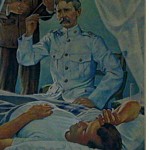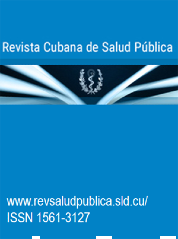June 2016
The inclusion of Haitian migrants in the Brazilian health system is the topic of the first paper opening the dossier The chalenges of the tripartite cooperation between Brazil, Cuba and Haiti, published in the new issue of Hist. cienc. saude-Manguinhos vol.23 no.2 Rio de Janeiro Apr./June 2016. Through different perspectives, i.e. Social Sciences and Epidemiology, four papers address the relationship between these countries in the area of health.
This issue also features twelve other articles on a variety of issues, ranging from health communication to mental health and the Brazilian sanitarian thinking in the early 20th century.
In the context of the wave of immigration that brought a large number of Haitian citizens to Brazil from 2010, the first article offers an ethnographic study on how the Brazilian public health program – Sistema Único de Saúde (SUS)-, responded to the unexpected demand of these new users in the state of Amazon, where many of them first arrived in the country.
Although the author did not detect obstacles to the treatment of immigrants, he points out that the lack of coordination by public policy holders hampers the access of Haitians to the Brazilian health system.
The framework of this tripartite cooperation between Brazil, Cuba and Haiti, also guides an article focused on an educational experience of professionals responsible for epidemiological surveillance and health information systems in Haiti. A study about the role of Fundação Oswaldo Cruz (Fiocruz) in a project on health knowledge transfer to that country also takes part in this issue.
Implemented in 2010 to strengthen the health system of Haiti after the earthquake, the tripartite cooperation was also the subject of a study describing practices and perspectives of the actors involved.
This issue also features a paper entitled The sertão remediated: the clash between the elite of Goiás and sanitation thinking, 1910-1920, which addresses local repudiation of the report by Arthur Neiva and Belisario Penna about their experience into the region to evaluate the health situation of the population. The document highlighted, above all, the spread of Chagas disease.
This number of the journal also publishes a study on artistic and cultural activities in public mental healthcare in greater São Paulo. Also on mental health, another article analyzes the discourse of posters of the National Anti-Asylum Day (Dia nacional da luta anti-manicomial).
The following topics are also addressed: the emergence of AIDS in Amazonas; the struggle against syphilis in Belém do Pará from 1921 to 1924; the statistics of tuberculosis in Colombia; assistance to families of leprosy patients in Goiás; the cholera morbus epidemic of 1855 in Pernambuco; leprosy in Governador Valadares, Minas Gerais, in the 1980s; pharmaceutical studies during the Second Empire in Mexico; and an analysis of the first issues of Revista de Saúde Pública, published by the University of São Paulo (USP).
Regarding the current political situation of Brazil, the editor’s note denounces attacks on the Constitution of 1988, with abuses that underpin the democratic rule of law and social achievements grounded in the Charter. The editors warn us of the threats to health imposed by the current administration – while Dilma Rousseff is judged in impeachment proceedings -, including steps to intensify the fiscal adjustment, thereby undermining social policies and government initiatives in vital sectors like health.
Read the full issue:
Historia Ciências Saúde – Manguinhos vol.23 no.2, Apr./June 2016









